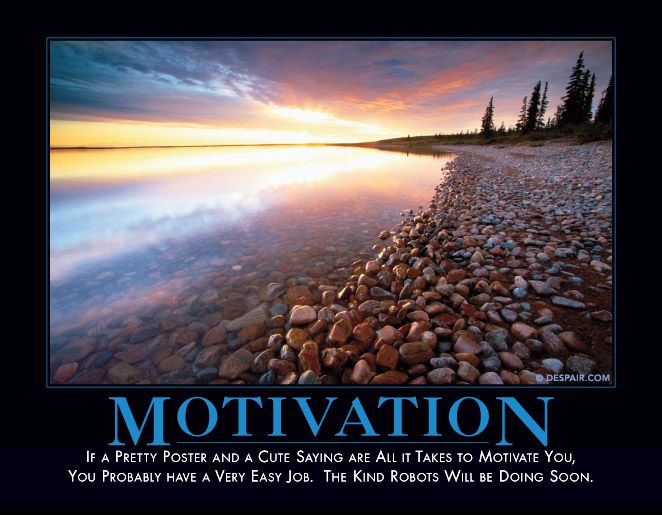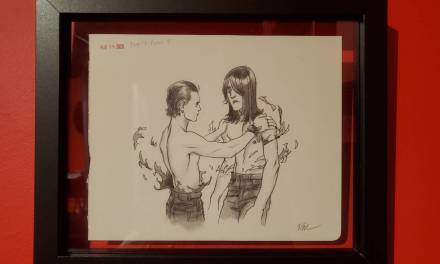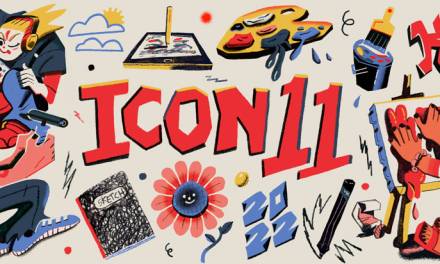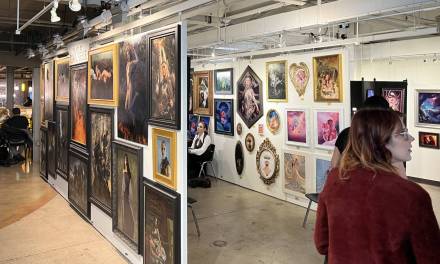There’s the proverb that says, “Pride goes before destruction, and a haughty spirit before a fall.” That sounds a little preachy for my taste and I much prefer “everybody puts their pants on one leg at a time” or the funny crudeness of “don’t act like your shit don’t stink” or the directness of Han’s advice of “don’t get cocky.”
Part of being an artist is having an ego: you need one to survive. Anyone can create in private, but it takes some hutzpah to pursue a career as an illustrator or painter and to put your work out in front of an audience. You’ve got to believe in what you’re doing and have something of a thick skin to keep from being discouraged by criticism, disinterest, or indifference.
And it is perfectly understandable to feel your oats a little after years of school, study, or struggle: you’ve worked for your success and it’s natural to do some strutting once you’ve achieved it. But the trap to avoid is in thinking that anything lasts forever, that at a certain point new jobs and popularity are guaranteed.
They’re not.
I know an illustrator who, upon winning one of the science fiction field’s bigger awards, immediately contacted his clients and informed them that his rates had just gone up. That didn’t go over particularly well and, slowly but surely, his commissions dried up; he used to be all over the place, but now I can’t remember the last time I saw a new cover by him.
The hard truth is that trends, styles, looks, preferences, and fads go in and out of favor, and that applies to the art world, too. What’s hot and spawning imitations and imitators one year is “old fashioned” and out of favor the next: nothing is perpetually popular or in demand, particularly in this day of multi-media cacophony and increasingly shortened attention spans. There’s a constant search for the flavor of the month…and there’s always a new flavor of the month to be discovered. Thousands of art students graduate and enter the marketplace every year…and they’re all hungry. Your competition increases significantly each summer and, no matter how good you are, there is inevitably a batch of folks in the mix every year who are subjectively “better” at the game: they see things differently, their solutions have a unique wrinkle, they might be faster, their skill sets might be more accomplished, there are clients or galleries or audiences who simply respond to or identify with what they’re producing.
And…memories are short.
In a recent interview, Mike Mignola said, “I did a show, HeroesCon, a few years ago, the year after Frazetta died, and an artist came up to me, a young guy. He was asking about composition in my work and I made some reference to Frazetta and all my compositional stuff comes from Frazetta, and he didn’t know who he was. It was so grim and at the same time, eye opening. It is spooky to see certain guys that, to me, were the biggest guys kind of fading out.”
How do you maintain your audience and client base? How do you stay “relevant?” How do you keep your edge? An easy answer is to stay competitive, to be a participant in the race. Yeah, there are those who embrace the purity of expression and decry the thought of artists competing with each other, either in school or the marketplace, and that’s perfectly fine if you don’t care who or how many see your work (and if you’ve got a juicy bank account that allows you not to worry about the light bill). Otherwise…life is a series of competitions and embracing them, of meeting those challenges, helps keep us sharp and interested. It makes work fun. Okay…sometimes fun.
And how do you stay competitive? Never assume. Never be complacent. Never stop learning and improving. Never stop networking, reaching out, meeting new people, and engaging both your clients and the public. Never be afraid to experiment. Never lose your curiosity. Never hesitate to investigate new venues for your abilities. Never become so rigid in your expectations that you close doors of opportunity. Never be afraid to question your choices or explore solutions outside your comfort zone. Never be too proud to ask for opinions or seek help from your peers. Never rest on your laurels. And never, never, never become a pretentious pratt. Pants: one leg at a time. Poop: stinks.
Certainly, be happy when a piece comes out well; take pleasure in praise and positive reactions. But keep in the back of your mind the motivating thought, “The next one will be better.”
Never take your success for granted.
Above: A funny (but maybe true) “demotivator” poster from despair.com
I was once treated with extreme disrespect by an executive in a job interview early in my career; I got hired, but wouldn’t have if the decision had been strictly his. Years later I was sitting on the opposite side of the desk when this same person (who had lost his executive position) interviewed for a job with the company I was then working for. He undoubtedly thought that he’d always be calling the shots and was going through some rude readjustments: interviewing for work wasn’t an easy task. I treated him professionally (remember advice #1: Be a pro) and with respect; we reminisced about the “good old days” at the other company and I didn’t remind him of his abusive behavior to me when I was wet behind the ears. There was no point to (and he probably didn’t remember anyway). I shook his hand as he left the office…
And immediately round-filed his resume. I could growl “paybacks are a motherfucker,” but the reality was that his portfolio was only average and out of date; he was not current with the graphics software that was an integral part of the job; and, yes, personal knowledge made me doubt he would be an effective team player (incredibly important in a smaller company). Strike 1, strike 2, strike 3. If the third strike had a little pepper on the pitch, well…paybacks are a motherfucker.
Once you become successful (talking from the perspective that you’ve got the Right Stuff to make it in whatever artistic career path you follow), always remember how you got there. Remember the people who helped you achieve your goals, your teachers, your friends, your family, your significant others, your clients who saw something in you and took the risk. Show everyone respect and consideration at every phase of your career. When you’re sitting on the peak, show courtesy to everyone, especially to those who may not have the abilities or fortitude to make it as high up the slope as you did. Treat kindness with kindness. Because everyone you met climbing up the mountain, you will most likely meet coming down. How you’ve treated them in the past will determine whether they extend a hand when you need one or give you a shove with the toe of their boot to speed you along the way.
All aspects of the arts goes through cycles and part of being an artist is to recognize those cycles, willingly respond to change, remain flexible, and keep working. And above all, “don’t get cocky.”









I love this:
“…Yeah, there are those who embrace the purity of expression and decry the thought of artists competing with each other, either in school or the marketplace, and that's perfectly fine if you don't care who or how many see your work…”
I can't imagine a single successful artist who didn't incorporate competition into their motivation.
Great Post!
Who's Mike Mignola?
Is the use of the term “motherf***er”, professional? I think that word distracts… Please be professional, creative, and think of something more clever… and less crude so I can share all this good advise with my grandchildren… Thanks…
🙂 Well, I try to be as conversational with these posts as I can and speak (or write) in the same “voice” that I talk in. Profanity in general doesn't bother or offend me. Is “motherfucker” a professional term? Not if I had called the guy I was interviewing one. But when it comes to artists and art directors talking together, the language can be pretty salty and that saltiness can be as humorous as it is direct. Saying “paybacks might be an unforeseen consequence of previous unsocial behavior directed at others” doesn't have quite the same impact or immediacy. 🙂
Unless you're joking (and I hope you are):
http://en.wikipedia.org/wiki/Mike_Mignola
Thanks for feedback… A couple of other points to ponder… Isn't some language best reserved for private conversation? The internet is quite public. Secondly, if a percentage of the population is more offended by the salty language than the immediacy of the point… you have diminished your influence… some of those folks might be contemplating purchases, travel, etc. with family to some of the meetings you describe, and elect not to now… I know you can't please everyone, but no reason to let immediacy of point diminish cash flow… Thanks for listening…
I have a very personal connection with this post honestly. I'm still in the infancy of any sort of career path, being still in art school and all, but I think the message rings true no matter what stage of the game you are in.
I can still remember sending messages to a bunch of the artists that I admired on conceptart.org and just being in both awe, and a slight amount of shock, that they would respond to me. Being that I was such a 'lowbie', barely even fledgling artist. They helped in any way they could and honestly, between my fiancee (whom I credit even starting anything in my life) and those artists that pushed me onto the first rung of those monkey bars, I can't thank any of them enough.
This is a very emotional and influential post. Thanks for sharing!
Ah. 🙂
“I don't swear just for the hell of it. Language is a poor enough means of communication. I think we should use all the words we've got. Besides, there are damn few words that anybody understands..”
—Henry Drummond / INHERIT THE WIND
I appreciate your points, but I'm content to write the way I choose, use the language that I feel best serves the purpose, and let the chips fall where they may. I only differentiate between public and private discourse in regards to subject and content, not on the language utilized. Perhaps that's a failing, but to me words are words, nothing more and nothing less, and I don't believe that any word is taboo, except when it is used to inflict hurt on another. There's a great Lenny Bruce routine (repeated in the Bob Fosse bio film LENNY) that drives home that point. If my use of one word obfuscates the message for someone or, as you suggest, makes them not want to attend a workshop or convention (and I presume you're referring to Spectrum Live 3), that's unfortunate, but it might be for the best. God knows they'll see art that might make them uncomfortable or hear words or opinions that might offend them or which they might disagree with. If they're not understanding or tolerant of people who don't think or act or speak precisely the same way they do, it might well be an upsetting weekend for them. As you say, you can't please everyone and I'm not trying to; I'm just “speaking” straight, in my own voice, and using what limited language skills I possess. Any offense is unintended, but I'm going to continue to use naughty words periodically because…that's the way I talk. Perhaps I was a sailor in a past life. 🙂 Thanks for sharing your concerns.
That's a great post Arnie! I am going to stick a plaque above my easel with the words 'Pants: one leg at a time. Poop: stinks' 😀
I'm contemplating a tattoo. 🙂
What's sometimes hard to remember is that everyone starts out the same way. No matter how accomplished or comparatively successful someone is or becomes, there was a time when they didn't know what to do or how to do it, when they doubted their choices and worried about their futures. Every artist has periods of insecurity: that's part of being an artist. It's a shared experience that makes us all a part of the community; being an artist sometimes seems like a solitary profession and all I'm trying to say in these various posts is, “You're not alone.”
Thanks for your response!
Obviously you've never smelled my poop Arnie, rose like. And I thought we were so close. This is such a great post. Bridge burning can be career burning. Suppose I have to agree with you about the language thing too. There comes a point where we need to choose whether to accept people or not. Awareness is a rare thing.
I was up for a project just as I was finishing school. In retrospect, it was not a big project. Certainly not high paying nor high profile, but it was one of the first real projects I was up for and the video covers promised to be fun and ongoing. I knew one of the other artists up for the job and in my own naive cockiness, I proceeded to trash this other artist's work ethic. I had seen him in action. He was way slower than would be workable in this situation, he relied way to much on photos and his compositions were weak. I thought this would for sure cast me in a better light and give me the job. When I got the call to come back in to meet with the art director, I thought I had nailed the project. As soon a s I sat down, the smile faded from my face as the AD told me they had given the project to the artist I had dissed. He then dressed me down and told me how unprofessional I had been to bad mouth the other artist, basically ripping me a new one. It hurt a lot knowing he was right and that had I not said anything negative, I might have landed the job. Hard lesson learned, but one I remember to this day.
Great post!
I've had insults from others in the past and although I've only forgotten a few of them, it wasn't half as humbling or able to put me in my place as being around artists that were both younger and better than me. That is an experience anyone out there who thinks in their own mind that they are “good”, should get around artists that are better than you.
It's a good way to push you to work to get better, and also you will reevaluate why you got in this business (hopefully because you enjoy it).
“What goes around, comes around.”
You crack me up, Arnie. What a great post. I've definitely witnessed a few 'rockstar' artists treating up-and-comers like absolute shit. As if their artistic ability had some merit in the amount of respect they deserved. Those sorts of things have a way of burning themselves into your memory.
On an aside, I like the unintentional juxtaposition of these lines…
“Poop: stinks.
Certainly, be happy when a piece comes out well.”
You just gave me my morning laugh, Dan! 🙂
Bill, I had heard that your nickname was “The Rose of Boise State.” Now I know why. 🙂
Great story, Greg. Maybe that should be the subject of a future post that everyone can pitch in on: hard lessons.
excellent post Arnie!
i would probably think an aspiring or new illustrator that didn't know who Frazetta was, is most likely a rarity or exception to the rule. but if they're not, then i've lost even more hope for humanity. that would be akin to Picasso never having heard of Manet, the advent of globalization and the digital era notwithstanding, it should be an important part of any illustrator or visual artists' learning process to understand the history and styles that have come before us.
also because it's really cool to see what others are doing.
excellent post Arnie!
i would probably think an aspiring or new illustrator that didn't know who Frazetta was, is most likely a rarity or exception to the rule. but if they're not, then i've lost even more hope for humanity. that would be akin to Picasso never having heard of Manet, the advent of globalization and the digital era notwithstanding, it should be an important part of any illustrator or visual artists' learning process to understand the history and styles that have come before us.
also because it's really cool to see what others are doing.
Feel free to use it or contact me if you want me to expound without giving away the identities of the guilty (other than myself).
You would totally think that it's a given that anyone wanting to become an artist would ravenously seek out the best and the brightest artists from the past and present and then learn from them. Sadly, this seems to be the exception rather than the norm. In my on and off teaching at the university level, I am shocked at how many students who claim to want to become artists have no idea who to look at or where to look to find great art. Worse yet, there seem to even be students who have no interest in even looking! I think that is where we come in as mentors to the next generation. I have benefited greatly from the example and encouragement of those great artists I have had the pleasure of studying under and learning from. It's good to pay it forward.